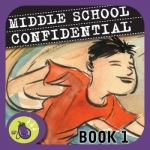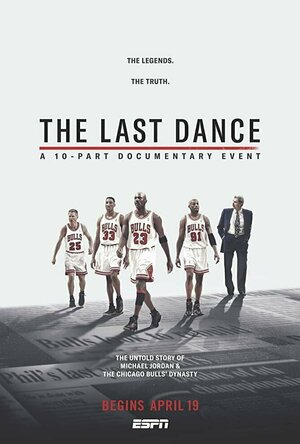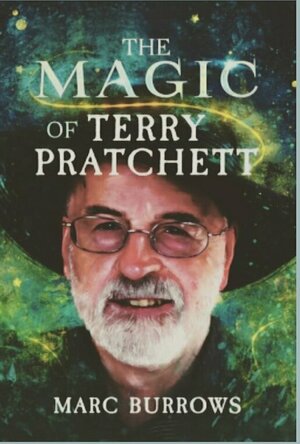
MSC1: Be Confident in Who You Are
Book and Education
App
Now for iPhone and iPad! • “As you prepare for back to school, don't forget the anxiety...[this...

Weirdwood Manor
Book and Education
App
A mighty darkness is unleashed on the Library, a force that tests the limits of even Arthur’s...
Emma @ The Movies (1786 KP) rated The Lion King (2019) in Movies
Jun 20, 2020
As the film started I was taken aback by the beautiful scenery shots, animation studios really have nailed realistic water. As the animals started to appear I was encouraged for the most part. The zebras and antelope looked wonderful and the movements were spot on, but the larger animals didn't quite have the same elegance. Watching it all was fine though until you noticed something, then it was difficult not to spot something else.
I really disliked the animation of Scar, I know he's supposed to look like the typical alpha male of the pride, but his look in the original and now has never been very in keeping to me.
The best piece of animation in the whole thing was Timon. That little meerkat was spot on through the whole thing for me, edgy and darting, it was perfect. The only drawback was the voiceover by Billy Eichner, he doesn't encapsulate the personality of Timon, but then he did have some big boots to fill.
With Timon as the best of animation, it was only fitting that Pumbaa filled in the other side by being the best of the voice cast. Seth Rogen was born for this role, he's fantastic. I absolutely loved him. Perfect comedic timing, maybe not the best singing voice but once it mixed in with everything else you couldn't tell.
Dare I say that I wasn't a fan of the songs? I didn't like the modern take on them... I'm not sure if I'd really classify it as a modern take, everything just seemed to be taken much more seriously than before. I actually quite enjoyed Be Prepared, while it wasn't really sung it probably plays better to Chiwetel Ejiofor's strengths done this way. The really dubious addition was the song "Spirit" by Beyoncé. It was barely included and if it was in there more then it really didn't stick out. The only bit I noticed was "spirit, spirit" being bellowed randomly. I've watched the video and full song on YouTube since the film, I can only assume that it's an attempt at best original song awards but I don't think it has that goosebump impact that Disney epics should. Those high notes should probably be left to Mariah.
It's difficult to know just how much my enjoyment of the original affected my feelings about the new one. It's not one that I grew up with, I rewatched it recently for what may have been the first time. Lion King is very much one of the Disney classics you can be aware of even without seeing it, that's the power of Disney.
Remaking a film as "live-action" when there's no human cast seems like the wrong choice to me. The realistic CGI will only work up to a point when you're trying to make animals speak. The films itself is still spectacular, and there are some amazing pieces of animation to see (I do love baby Simba, he's so cute), but I'm of the opinion that if it ain't broke don't fix it. When you look at it overall the voice cast isn't any better than the original, neither are the songs, with it being so incredibly similar with only the animation style being the major twist I'm left underwhelmed by the final cut.
Originally posted on: https://emmaatthemovies.blogspot.com/2019/07/the-lion-king-movie-review.html

Awesome Calendar - Personal Planner
Productivity and Lifestyle
App
Now you can automatically sync with all iPhone calendars, write your todo list, create notes with...

iMuscle 2 - iPhone Edition
Health & Fitness and Medical
App
iMUSCLE 2 IS A HIGHLY VISUAL, 3D-BASED, AWARD WINNING HEALTH AND FITNESS APP THAT HAS EVERYTHING YOU...
Kirk Bage (1775 KP) rated The Last Dance in TV
Aug 6, 2020 (Updated Aug 6, 2020)
Basketball for me has never really been a thing. To be honest, I barely understand the rules beyond the basics. It just wasn’t something that was on British TV that often as I grew up, the Olympics being an exception. The skill level (and height above Sea level) needed to be good enough for NBA glory does not escape me though, and neither has the exceptional career of Michael Jordon, who is a clear contender for greatest sportsman of all time, in any sport.
What I do enjoy though is the drama of over-coming hurdles and records against all the odds. The underdog story really appeals to me, as does the story of an older athlete doing it one last time, when no one thinks it’s possible. The Last Dance is exactly that. But not told by actors in a Hollywood way, like the wonderfully under-rated Miracle starring Kurt Russell. This is a documentary, in ten parts, with the real guys, and some of the most comprehensive archive material you’d ever want!
In theory, the tale is about the whole team, and their final fling at winning a title before knowing the aging gang would be disbanded, with the key figures forced into retirement. But, it is about Jordan, of course it is. And as a document of a rise to fame, and how the man responded to that fame and increased pressure, it is simply the best sports documentary yet to be made.
Told in parallel timelines of the final year juxtaposed with the backstory of the previous 20 years, it shows in exquisite detail how a franchise was built, maintained and taken to the heights of being the greatest ever to play the game. There are tantrums, fall outs, walk outs, no shows, injuries, and some mind-bending successes riding on single moments of genius.
The main voices of Jordan himself, as he sits in retirement with a cigar and a single malt, Scottie Pippin, and bad boy Dennis Rodman, are in parts fascinating, eloquent and revealing. Even after many years have passed, the emotion of big moments and issues is still fresh. We see the joy, the pride and the exhilaration, but also the regret, the grudges and the pain. It shows every angle of what being an athlete at the very top means, and exposes what kind of mentality you have to have to be that person. To be a champion.
As with me, it really helps with the cliffhanger drama of it if you don’t remember, or never knew at all, the result of that “last dance” season in ’98. It also helps if watching sport raises the pulse, but I wouldn’t say it is essential, as it all plays like an ten part series full of drama, betrayals and gasp out loud moments. Ten hour long episodes is a lot. But this incredible production never out stays its welcome. Some acheivement, and testament to what a charismatic figure Jordan was and is on the context of sport history.
Of course, not every hero is a hero every minute of his life. And that is my final reason to recommend it. See for yourself what kind of personality virtual gods like these invent for themselves. Utterly compelling TV.
Lottie disney bookworm (1056 KP) rated The Magic of Terry Pratchett in Books
May 27, 2020
As a 32 year old female, mother and accountant you may be forgiven for expecting my book reviews to be based around chick-lit or classical novels and, although it is the case that I own several very well-read copies of Pride & Prejudice, I am wholly a child of the sci-fi/fantasy genre. Terry Pratchett novels sit alongside George RR Martin, Terry Brooks, David Eddings and Ursula Le Guin in my house; I owned and loved Discworld computer games and probably know every word to the film Labyrinth.
It could therefore be said that I would find Marc Burrow’s biography fascinating regardless: however, I am ashamed to say that, before reading this book, I knew very little about the life of the author whose books I admire so much.
Burrows structures his writing predictably enough, running through the life of Terry Pratchett chronologically, from his working-class upbringing; his career in journalism; the progression in popularity of his novels; his knighthood all the way up to his untimely death from Alzheimer’s. However, this is where an affiliation to any standard biography ends.
It is immediately apparent that Marc Burrows is an avid Terry Pratchett fan, even without reading his foreword, due to the inclusion of footnotes: a writing style which is synonymous with Pratchett. This allows Burrows, as it did with Pratchett, to provide little notes and details which cannot be in the main text without limiting the reading experience. It also allows both authors to inject a large amount of humour into their writing.
It should also be mentioned that no book has gripped me from the introduction in a long time, although I am fairly sure no other book would use the word “crotch” before we even reach Chapter One!
‘The Magic of Terry Pratchett’ is a clever, well-informed biography which perfectly encompasses the humour of the Discworld creator whilst educating the reader of his journey to becoming the icon that he is today. I have no doubt that this has been a labour of love for Marc Burrows: when the kindle says you have 20 minutes reading time left and you have reached the bibliography, you know that a whole lot of research has been done!
Sir Terry also had the tendency to embellish his stories and this is a factor Burrows does not try to hide; highlighting when facts don't quite add up and almost analysing the situation to try and discern the truth. This was such a refreshing approach to a biography: the wool is not pulled over the eyes of the reader, nor the subject blindly believed for convenience.
It is important to note that this book transgresses the existence of Discworld and “the business with the elephant” and encompasses all of Sir Terry’s work: from short stories in the local paper to his TV documentary on assisted death.
The reader will also learn of the involvement of Rhianna Pratchett in her father’s work and discover that the “man in the hat” was not always the easiest man to work with.
I am going to need at least 3 copies upon release- can we preorder?

Live Train Times UK - National Rail
Travel and Lifestyle
App
One of Sainsbury's Magazine's "20 Best Apps for Busy People"! Officially licensed and best...

SnapType Pro
Education and Medical
App
This is the Pro version of SnapType, which has all of the features of the original SnapType plus the...



